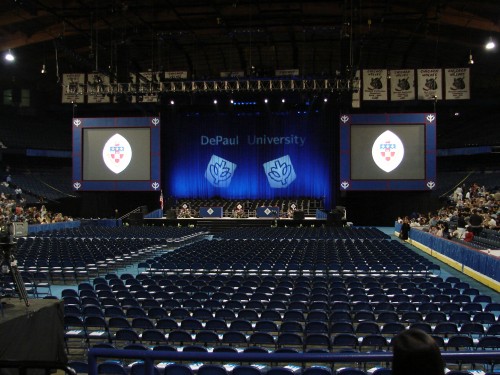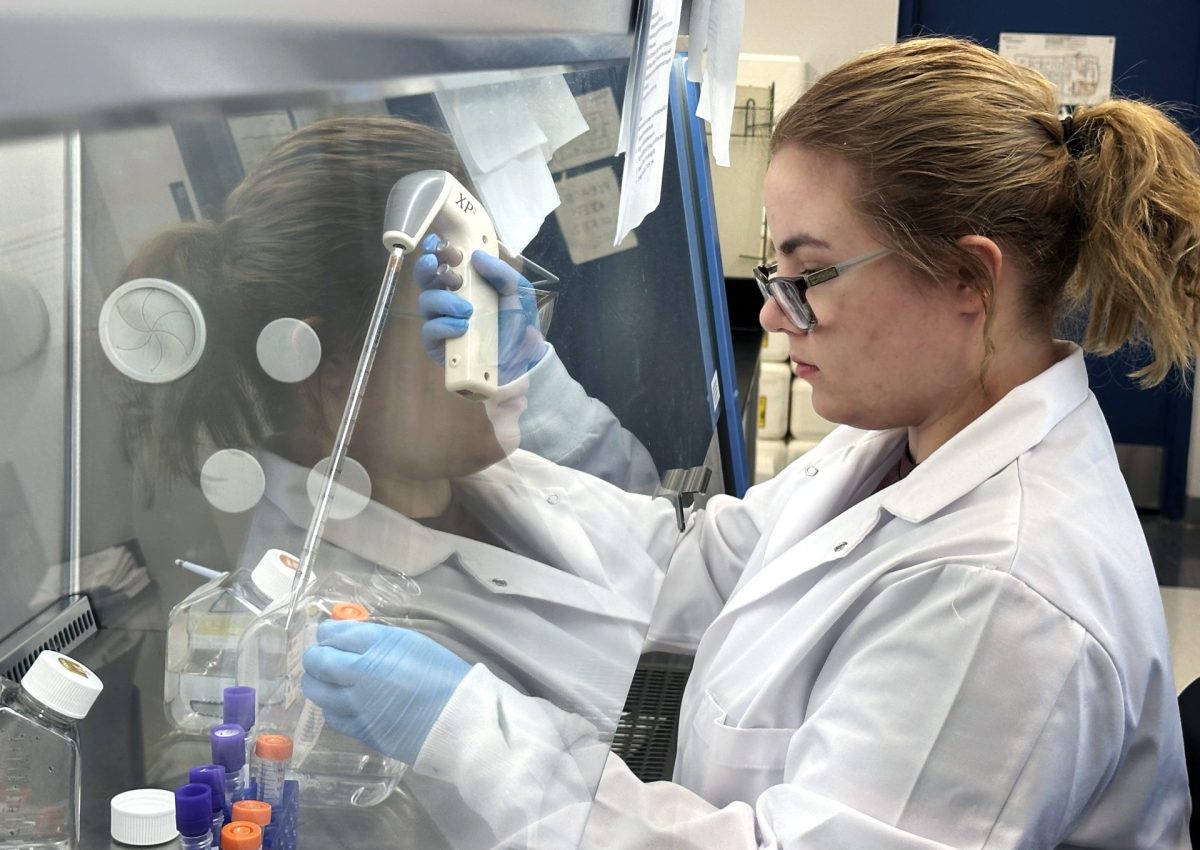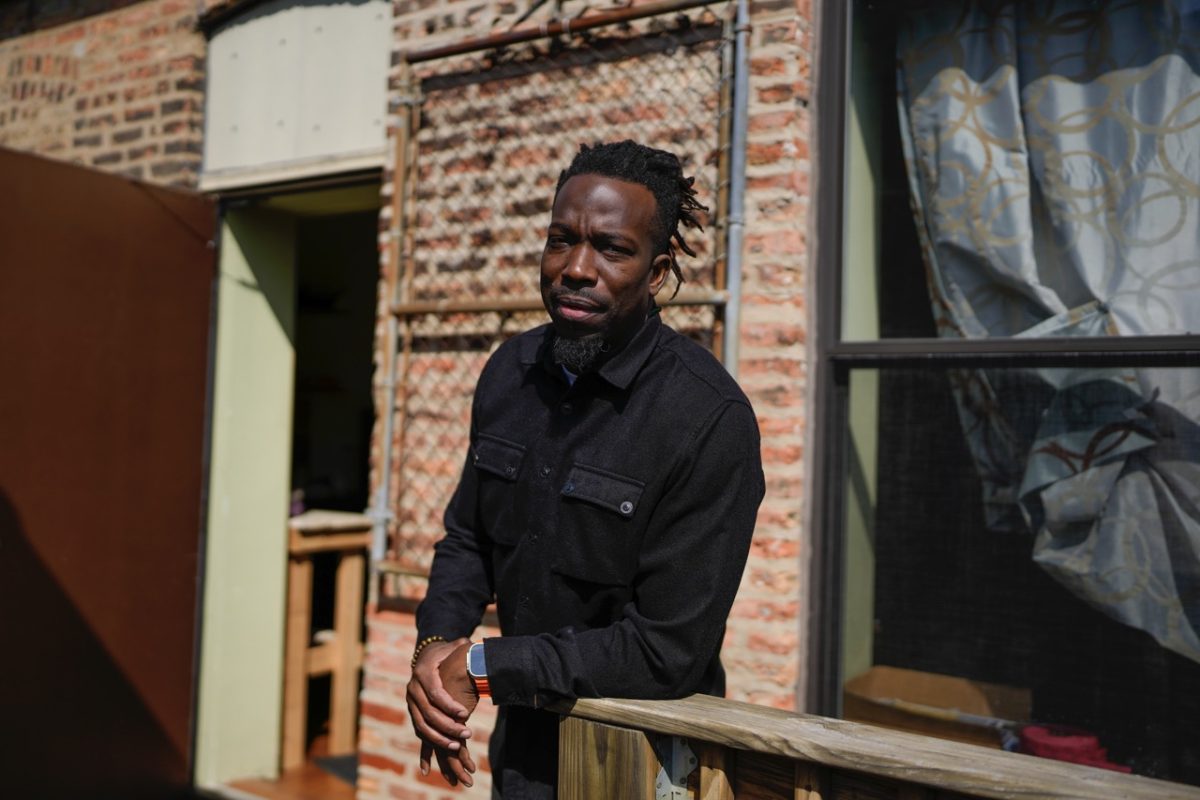
As DePaul’s seniors wrap up their final undergraduate moments, some students are excited to start their first entry-level jobs, some are looking forward to traveling for a couple years, and some are simply waiting for a summer vacation before starting graduate school, while others are contemplating their degrees and if graduate school might be worth it and when.
In the past five years, there has been a growing trend of college graduates enrolling in graduate school and an even a greater trend of students enrolling right after completing undergraduate work.
According to the National Center for Education Statistics, total enrollment in post-baccalaureate degree programs was at 2.9 million in the fall of 2013. While enrollment nationally is projected to increase by 20 percent (3.5 million students) in the next 10 years, DePaul’s statistics reflect differently. Since hitting a peak in 2009, enrollment in the university’s graduate programs and law school have decreased every year.
Although there is no one reason why these numbers have dropped, Donna Del Giudice, career specialist at DePaul’s Career Center, believes it can be tied to the economy.
“Whenever the economy is bad, you see people rushing into graduate programs because sometimes they can’t find a job, but now that’s slowing down,” Del Giudice said. “Part of that is employment. Some people are not sure if they even need to go to graduate school anymore.”
Del Giudice, who’s been with DePaul for over 20 years, believes that getting a master’s degree right away depends on what the field is, what students want to go into, and whether a master’s is necessary right away. But in many cases, she believes students should work awhile before deciding on a graduate program.
“If they work awhile after undergrad school first, they might narrow down what graduate program is really appropriate for them, whereas if they make a rushed judgment, they might make more of a generalized decision,” Del Giudice said. “If you have a grad student who has worked three to five years in a profession, their class discussion is going to be completely different. They might be able to draw in their school work and make comparisons to what they’re doing in their job, or bring in examples to the discussion. It’s very different compared to students who haven’t worked in the field yet.”
In other words, getting a MBA is not only about getting the degree, it also includes incorporating the work experience into the study.
If one is patient enough, one might even find an employer who assists in covering some academic costs. Some Fortune 500 companies offer some educational benefits that help cover graduate degree costs. And without students getting any prior work experience, they could miss out on saving some money.
Also, it’s important to consider and calculate the graduate degree cost and calculate the overall return on the program to determine whether the degree is really worth it for certain career and personal interests. A graduate degree might require several years of life spent earning a degree that could cause accumulation of debt on credit cards in addition to debt from student loans.
Olivia Heath, assistant director of graduate student services at DePaul’s College of Communication, believes there’s no right or wrong way to go about pursuing a graduate degree straight after undergrad.
She said it depends on the individual, on their goals and their intentions. Some students are ready to make that commitment in their academic advancement, and others want professional work experience first.
“As long as they’re doing it for the right reasons,” Heath said. “Students should pursue a master’s for reasons that are meaningful, intentional, goal-oriented, well thought out and researched.”
As master’s degrees are highly specialized degrees, Heath believes that students should be able to articulate to their advisor why they want a graduate degree and what they intend to accomplish.
“If students can’t do that, then we’re going to have a conversation about timing,” Heath said.
While Heath believes that it’s equally important to have work experience and a graduate degree, she reflected on her personal experience when she applied for many positions. Although she had the experience, she couldn’t get the job because she did not have a master’s degree.
“If you get a degree right after undergrad and then work, by the time your five to 10 years into your career and already have a master’s under your belt, you might escalate at a quicker pace than others. Or perhaps you have somebody that has had experience, may have escalated earlier in their career earlier, but might have hit a cap into how high they can go in their industry due to the lack of a master’s degree,” Heath said.
Ultimately, Heath recommends it’s best to have both and while in graduate school, one should maximize the time and resources available to them. She believes it’s a second chance after undergrad for students to build their professional network, improve their resumes, join associations, attend networking events and get more internship experience.
“Equip yourself with as many resources as possible so that when you do transition into your professional industry of study, you’ll have all of that under your belt and in your tool kit from that additional time you spent in your grad program,” Heath said.







